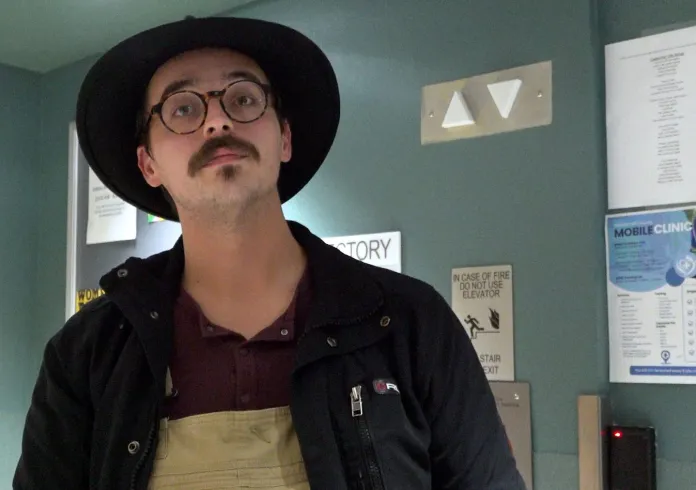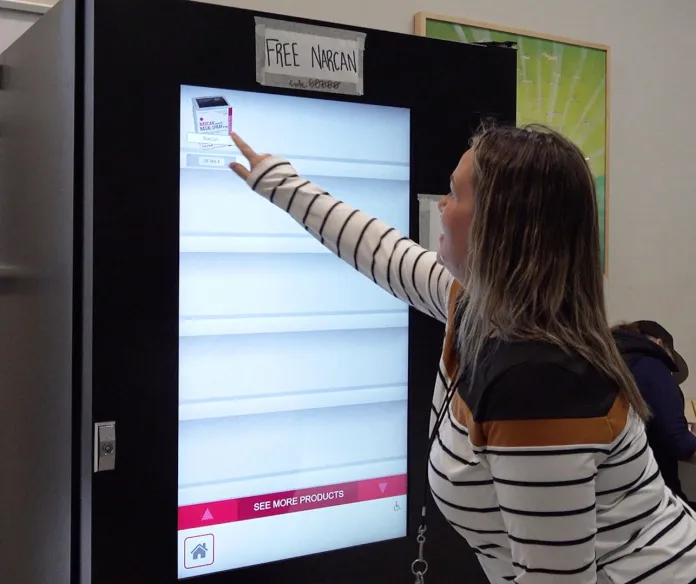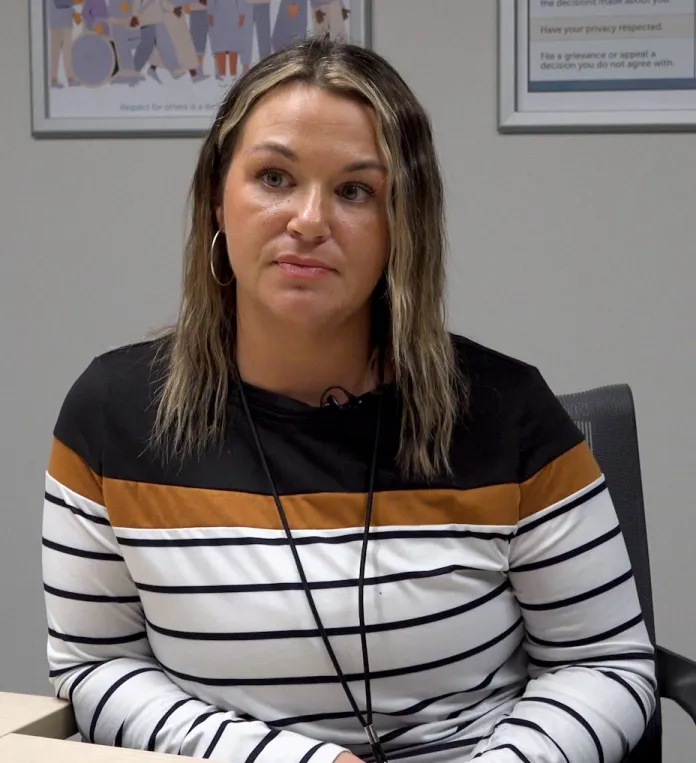PORTLAND, Oregon – A group of organizations in downtown Portland are pulling together their resources to help the homeless get back on their feet by building trust and reestablishing dignity. For those who want help, their message is beds and resources to get clean and off the streets are available.
“People will walk past you to snuff their nose at you,” Steven Arnold, Peer Support Specialist, Do Good Multnomah, said. “They don’t see you, they don’t smell you, and they don’t want to hear you. Here, we’re going to call you by your name, so you feel welcome. We’re happy you’re here. What barriers are in your way? And what can we do to help you overcome them?”
The first two floors of the Behavioral Health Resource Center (BHRC) are operated by The Peer Company. These floors act as a day center, where people can come in to escape the elements, receive a meal, do laundry, take a shower, grab items from a clothing closet, use a computer or phone, and even receive mail.
“The mail is a huge access point,” Maranda Grimaldi, Senior Director of the BHRC with The Peer Company, said. “Anybody who has ever tried to get housing, get food stamps, get health care without having a physical address to receive mail is pretty impossible.”

The third and fourth floors act as a shelter run by Do Good Multnomah. Here is where people are able to enter in 90-day programs, are offered short term beds, resources to detox and get on the road to recovery, and find a stable housing situation.
“A lot of time we’re dealing with helping get documentation from social security cards benefits, if there are any addiction issues, we start addressing those here and helping get the counseling that’s needed,” Arnold said. “And as people progress in that, we’re able to move them up to the fourth floor, which is where we actually give them back some of that agency.”
BHRC considers themselves a “low barrier” shelter, meaning there are no prerequisites, no proof of sobriety, and no insurance or ID is required to enter the facility. There is even a machine to dispense free Narcan for those who want it.

“If we see people engaging with the narcan vending machine it kinda gives us the opportunity to talk about other tools,” Grimaldi said.
“You do not have to be sober to enter, our hope is by the time you leave you are,” Arnold said. “They are not allowed to use here, we don’t pass out needles. What we are doing is, ‘Hey, the next time you think about that, come grab one of us, we’ll sit down, we’ll have a conversation.’ That conversation leads to sobriety. You’re going to sit down, I learned your name. You’re no longer looking towards escaping reality. You now have someone who is going to sit with you in reality and that’s the cure.”
The Peer Company is unique because they only hire those with what they call “lived experience.” The team I spoke with believe this makes them better equipped with the empathy to meet people where they are. It’s no easy feat, each staff member undergoes an 80-hour Peer Wellness Specialist training and must keep up with continued education.
“Working for and being a peer run organization means a majority of our staff are in recovery and have lived experience with substance use or mental health,” John Karp-Evans, Deputy Director of The Peer Company, said. “They’ve also all completed training to become certified peer support specialists.”

Maranda Grimaldi, the senior director of BHRC, is one of those with lived experience as she suffered from generational challenges with substance abuse and addiction. She says becoming a mother is what finally gave her the strength to get clean.
“I’m very proud and honored to be a part of the community that did make it, and has this opportunity to be a change and be a hope and be a guiding light for people,” Grimaldi said. “That would be my hope for my kids, is that they see that and they know that like, no matter what this life has to offer, like there is always hope and there’s always room for a change.”
COMMUNITY GROUP WORKS TO SHIELD PORTLAND PARK FROM CRIME AND DRUG USE
The building is owned and funded by Multnomah County with a budget of $9,901,655. Since opening in December 2022, The Peer Company has been able to serve 109,389 individuals, an average of 106 people daily. Do Good Multnomah has served 1,101 individuals since opening July of 2023. Working together, The Peer Company has been able to find 154 people emergency beds in Do Good’s shelter since July of 2024. These are people who received the day shelter services and want to take the next steps to get off drugs and get off the streets. The teams hope to reach even more every year.
“Our goal is to one day put all of ourselves out of work,” Arnold said. “Maybe one day, none of this has to exist.”
